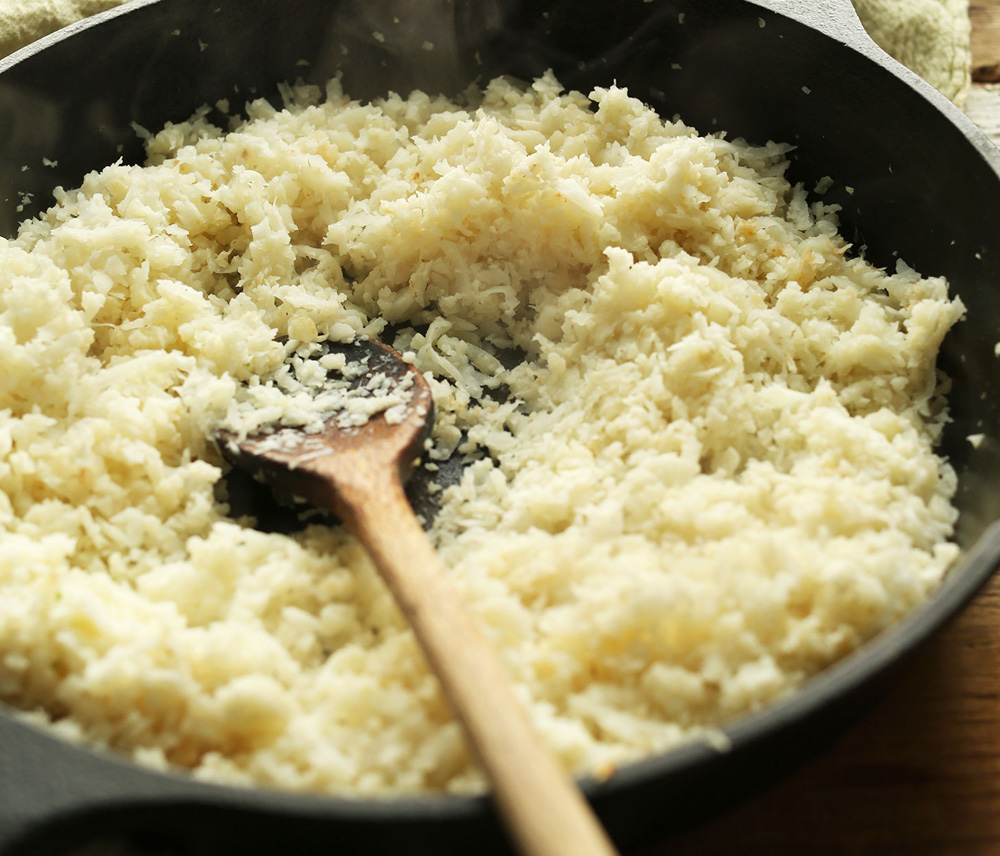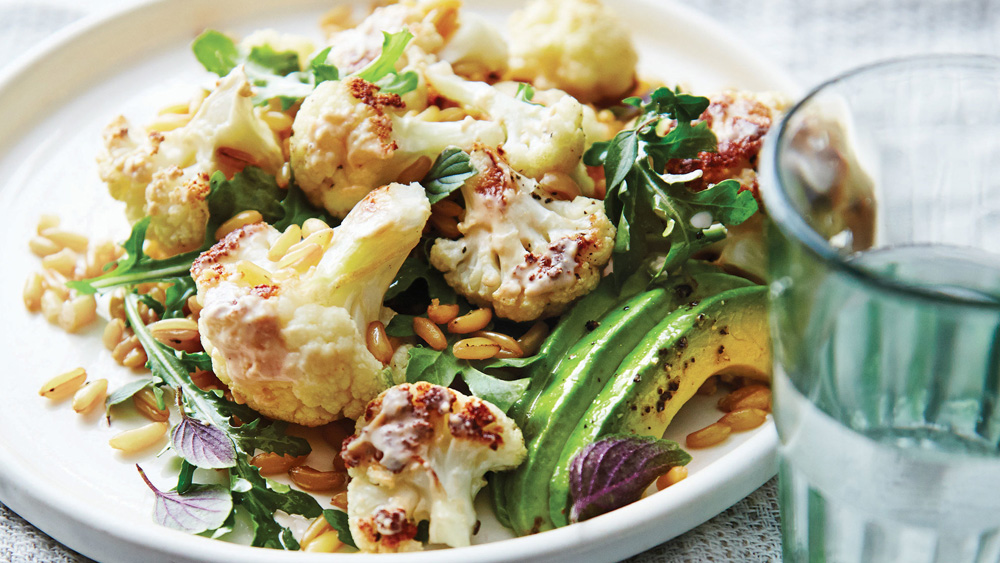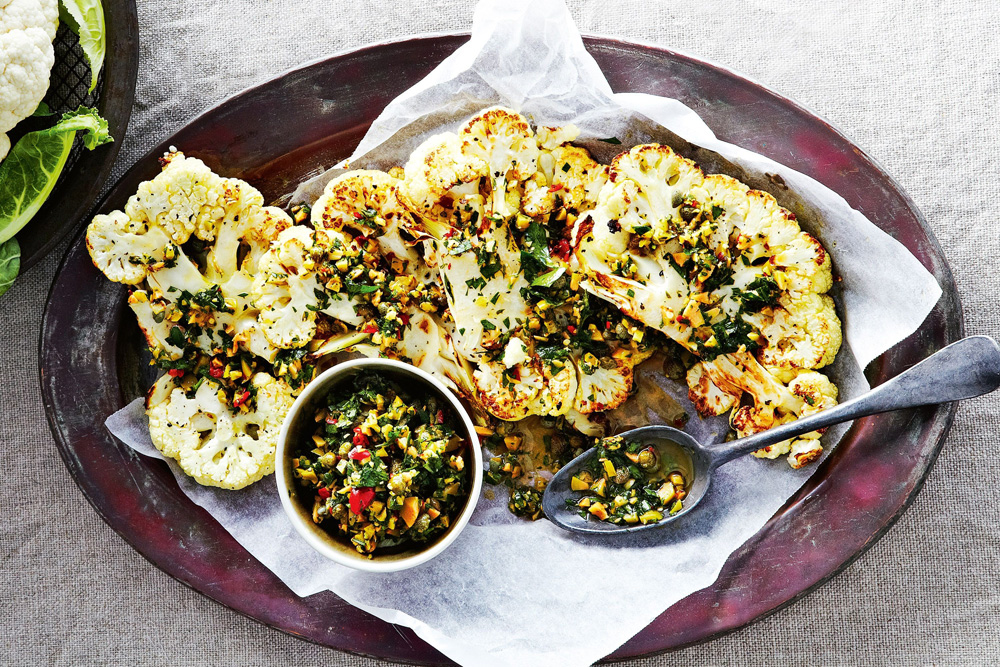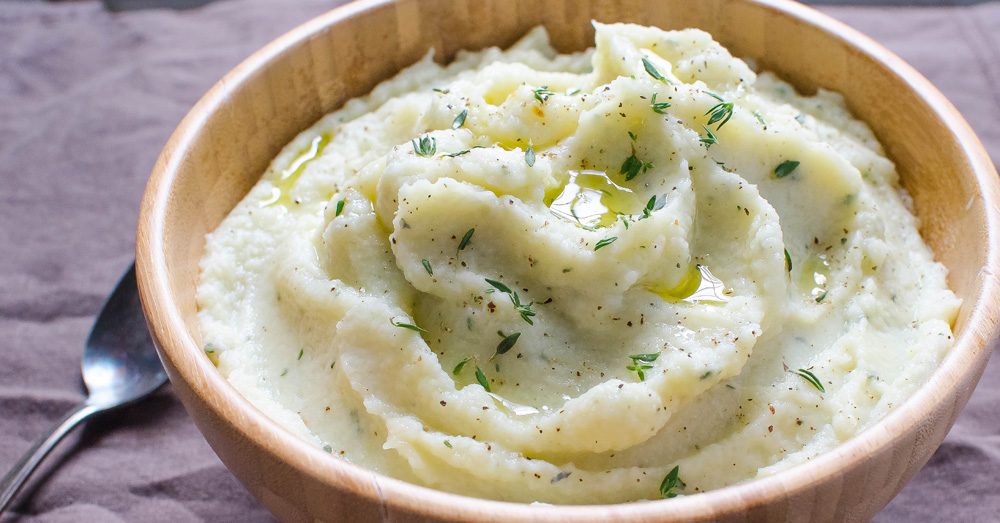
Roasted Cauliflower with Lemon Pepper and Fresh Thyme
A natural pharmacy can be found right in your fridge with some vegetables working as cancer treatments and deterrents, as studies have found. Alongside garlic, artichokes and its cruciferous cousins, cauliflower is proving to be a top disease-fighting superfood.
According to the US National Cancer Institute, cauliflower was found to inhibit the proliferation of cancer in different organs especially the bladder, breast, colon, liver, lung, and stomach. It also holds numerous health benefits that help prevent obesity, diabetes and offer protection from ovarian and cervical cancers.
In order to obtain fruitful results, studies show women should consume cauliflower regularly for it to work and provide the body with powerful tools to help fight breast cancer. Plus, eating this vitamin C infused vegetable will enable our bodies to resist ageing caused by everyday exposure to pollutants, stress and more. What’s more, adding turmeric, a spice containing curcumin that works as an antioxidant, anti-inflammatory and anti-cancer agent, makes the superfood even more super.
Dietary composition

Cauliflower Rice

Kamut Salad with Roasted Cauliflower
Cauliflower, often overshadowed by its green cousin broccoli, contains an impressive array of nutrients, including vitamins, minerals, antioxidants and other phytochemicals. The crunchy, hearty vegetable contains sulforaphane, a sulfur compound that has also been shown to kill cancer stem cells, thereby slowing tumour growth. A study published in carcinogenesis also found this compound inhibits the growth of breast cancer cells, leading to cell death. Its extreme versatility adds to cauliflower's appeal. You can eat it raw, add it to salads or use it in your cooking. The creamy coloured vegetable can even be seasoned and mashed for a healthier version of mashed potatoes.
The Significance of Sulforaphane in Cauliflower and Other Cruciferous Vegetables

Cauliflower steaks with olive and herb salsa
- Enhances heart health: Sulforaphane, found in cauliflower and other cruciferous vegetables, has been found to significantly improve blood pressure and kidney function.
- Anti-inflammatory: While you need a certain amount of inflammation in your body to stay healthy, your immune system may mistakenly trigger an inflammatory response when no threat is present. This can lead to significant inflammation-related damage to the body; a condition linked to cancer and other diseases, depending on which organs the irritation is impacting. In comes cauliflower, which contains a wealth of anti-inflammatory nutrients to help keep swelling in check.
- Rich in vitamins and minerals: Snacking on cauliflower is a simple way to increase your intake of nutrients like vitamins, minerals, and antioxidants. For instance, one serving of cauliflower contains 77 percent of the recommended daily value of vitamin C.
- Boosts your brain: Cauliflower is not just a cabbage member that resembles a brain; it’s a good source of choline, a B vitamin known for its role in brain development. Choline intake during pregnancy super-charges brain activity, indicating it may boost cognitive function and improve learning and memory. It may even diminish age-related memory decline and your brain's vulnerability to toxins during childhood, as well as ensuring protection later in life.
- Digestive Benefits: Cauliflower is an important source of dietary fibres for digestive health. Researchers have determined the sulforaphane in cauliflower helps prevent bacterial overgrowth in your stomach.

Healthy Cauliflower Rice Broccoli Casserole

Mashed Cauliflower with Roasted Garlic
If cauliflower isn’t your favourite vegetable, you can also benefit from eating other members of the cruciferous vegetable family including: broccoli, cabbage, arugula, mustard greens, watercress, turnips, Brussels sprouts, horseradish and wasabi.

Indian spiced cauliflower and broccoli salad
“Training is everything. A peach was once a bitter almond; a cauliflower is nothing but cabbage with a college education.” - Mark Twain
















